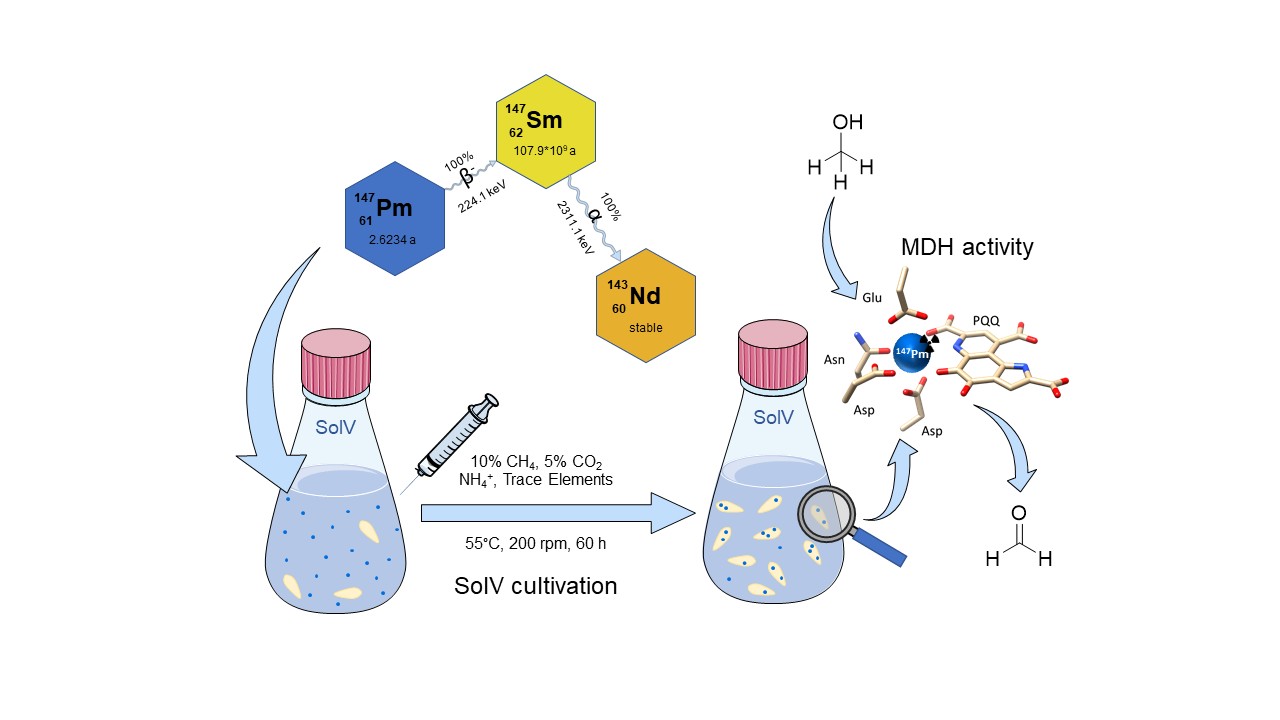Poster Presentation 21st International Conference on Biological Inorganic Chemistry 2025
Lanthanide-dependent methanotroph thrives on radioactive promethium (#491)
Lanthanides (Lns), are increasingly recognized for their roles in biological systems, particularly in microbial metabolism.1 Lns have emerged as essential cofactors in methylotrophic bacteria, where they support key enzymatic reactions, particularly in methanol dehydrogenases (MDHs).2 These bacteria show high specificity for certain Lns, yet the biological relevance of promethium, the only lanthanide existing exclusively as unstable isotopes, has remained unexplored due to its scarcity and β⁻ radioactivity.
Here we investigate the role of radioactive Pm-147 in the extremophilic methanotrophic bacterium Methylacidiphilum fumariolicum SolV. Using in vivo growth studies and in vitro enzymatic assays, we show that Pm-147 functions as an effective cofactor in Ln-dependent MDH, supporting bacterial growth and enabling enzymatic activity comparable to stable lanthanides. Notably, β⁻ emissions from Pm-147 did not impair MDH function or bacterial proliferation within the tested cultivation period.
These findings demonstrate that promethium fits its expected chemical and biological position within the Ln series, confirming its ability to substitute for stable lanthanides in a functional context. Importantly, liquid scintillation counting revealed significant uptake of Pm-147 by SolV, underscoring its remarkable capacity to accumulate and tolerate radioactive metals.3
This is the first report of a potential biological role for promethium, expanding the known lanthanide biology to include radioactive elements. Given SolV’s robustness and metal uptake capabilities, its successful cultivation with Pm-147 suggests potential applications in bioremediation, offering strategies for managing radioactive contamination in metal-rich environments.

- Pol, A.; et al. Environ. Microbiol. 2014, 16, 255-264.
- Singer, H.; et al. Chem. Commun. 2023, 59, 9066-9069.
- Singer, H.; et al. Angew. Chem., Int Ed., 2023, 135, e202303669.